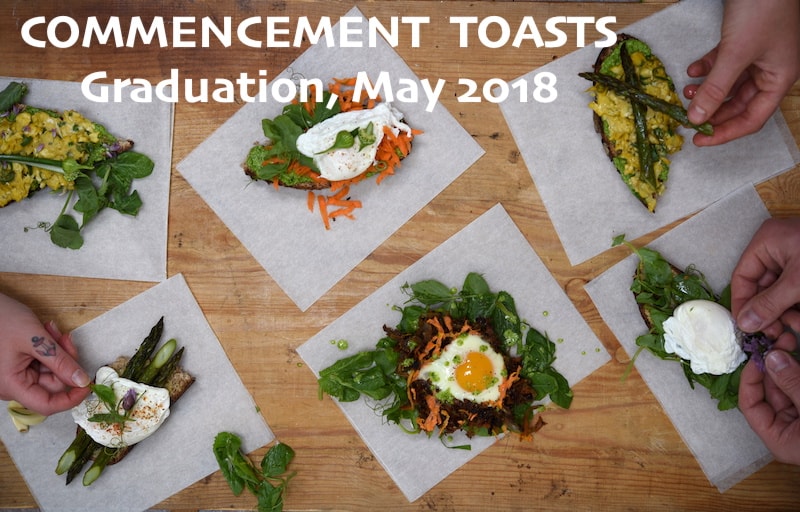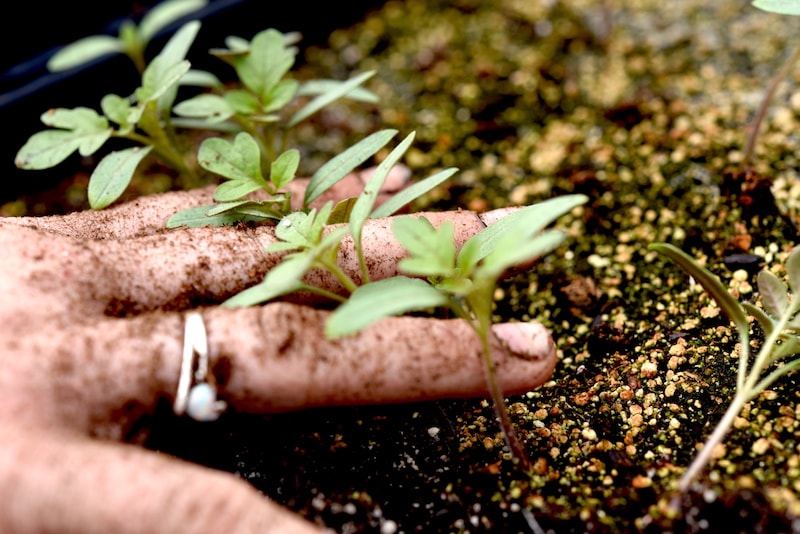Students writing UCCS' first Cookbook!
Nanna Meyer
When I first thought about writing a cookbook with students and publish it under a student-supported self-publishing concept, I felt as much excitement as hesitation. The excitement came from the many years of working with local food from Southern Colorado, creating recipes that would inspire young and older to get back into the kitchen and cook. It surely worked – as our research on the Flying Carrot Food Literacy booth at Colorado Farm and Art Market showed when we first appeared at the market with an educational concept and goal to pass on the love for cooking with fresh, nutritious, flavorful, and stunningly beautiful produce. But where did the hesitation come from, especially considering the fact that UCCS had made its full commitment to good food when bringing food service in house in 2014?
The hesitation came from not fully understanding whether we could self-publish and who would pay for it. I was also wondering how I could make my peers at UCCS value the publication, not as scientific contribution for which we generally meet our scholarly reviews, but as student-centered creative contribution to UCCS’ campus community. While I figured out the first piece, with the Green Action Fund generously supporting the project, I have yet to weed through the latter. I am convinced that the experience of the students in writing this cookbook as part of their college education will in itself be so transformational that it will provide fuel for academic writing and that really nobody will be able to keep their hands off this book because it will tell the profound story of food in rather troubled times with climate change obesity, a broken food system, and perhaps most importantly, lost relational values among nature, people, and food.
I knew this project would absorb me. I had no doubt that this project would fulfill me and that it would teach invaluable lessons in systematic recipe testing and writing, creativity in the kitchen with Colorado’s rather unpredictable seasonal availability of produce, expansion of know-how in food photography, launching into graphic design, and working across disciplines and with a changing student population. I had a sense that this project would excite students, but I had no idea how much it would get them going in the kitchen nor did I correctly capture the hours of work ahead, from harvest to plate and so many hands “soiling” the kitchen, while cooking up these fields of plenty.

This cookbook – Food Journeys on a College Campus – is about food literacy and it tells the story of the students, tasting the food of Colorado, meeting its farmers, learning about sourcing first, then the recipe (not the other way around), followed by the cooperation from farmer to foodie, or seed to plate, when farming and cooking together in UCCS’ Farm and farmhouse and many kitchens on and off campus. The book will not only highlight seasonal recipes from the Flying Carrot, but it will also provide a pathway to both eating healthfully and climate friendly through Food Next Door’s own interpretation of the Protein Flip, as inspired by Menus of Change. The book will also provide ideas of sport nutrition and how athletes can transform their plates with a refreshed approach to food and fuel, considering the ethics of eating as highlighted by the TrueFood program. As this book focuses on the food journeys of UCCS, the Grain School chapter will provide an apprentice-friendly approach into the wide world of ancient and heritage grains, using easily realizable first steps into sourdough baking and cooking, through the teachings about the biodiverse array of grains, leveraging their flavor and nutrition, while testing their adaptability to and market opportunities in drought-stricken Colorado in order to re-marry what appears like a derailed American plate with the health and nutrition of whole grains. Finally, this book is also about the urgent need to strengthen the local and regional food system, especially focusing in on farm-to-institution work, and how teachers, physicians, nurses, and dietitians learn about ways of food and eating and adopting new vehicles that promote real transformation in people’s eating habits, while saving the last frontiers of Colorado’s traditional food system.

So, who is this book for? Well, really everybody interested in local food and cooking, sustainable, climate-friendly menus, deliciousness on the plate, and connection among young people that comes from growing, cooking and eating together. And it is also for those interested in moving institutional change forward and integrating it academically for the benefit of future students. Our book will launch in 2020. With this bi-monthly blog, we will inform you and entice you, sharing with you the journey to fruition of the book, spanning the next 30 months of cookbook work!